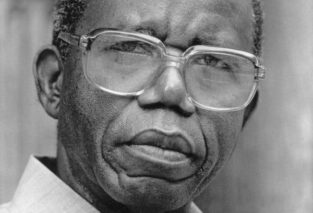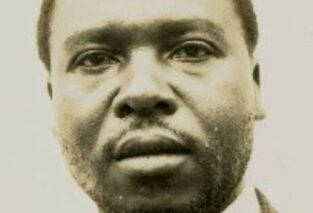(First carried by Cameroon Tribune of Friday, February 13, 1987).
Mention the name Agostinho António Neto in Cameroonian intellectual circles, and a few people may remember that he was the first president of the People’s Republic of Angola. Talk about Marcelino dos Santos, and do not be surprised at the blank expressions on many faces. Tell them that both men are two outstanding Lusophone (Portuguese-speaking) poets, and you would either have eyebrows raised in amazement or shoulders shrugged in indifference, because Lusophone literature remains, to a large extent, an uncharted territory in many African intellectual circles.
What follows is a bird’s-eye view of the most popular genre in Lusophone African literature today—poetry—and an examination of the reasons for its predominance. But first, why is Lusophone literature so little known across Africa today?
The Language Barrier
The first important reason is linguistic. Unlike English and French, Portuguese is not widely learnt outside the former Portuguese colonies of Angola, Mozambique, Guinea-Bissau, Cape Verde, and São Tomé and Príncipe. This creates an immediate barrier to accessibility for scholars and readers across the broader African continent.
More significantly, the works of Lusophone African writers have rarely been translated into English or French—the continent’s dominant colonial languages and lingua francas of academic discourse. Consequently, many such writers remain virtually unknown to the outside world, their voices absent from broader conversations about African literature and intellectual thought.
This linguistic isolation has profound implications for the reception and circulation of Lusophone African literary works, effectively marginalising an entire tradition of African creative expression from continental and international recognition.
Political Suppression and Underground Publishing
The second reason for Lusophone literature’s obscurity is political in nature. The works of Lusophone African writers were frequently banned in Portugal and its colonies, whilst the writers themselves faced persecution, imprisonment, or were driven into exile. This systematic suppression meant that the few available original works were usually published in limited editions, primarily in socialist countries or in left-leaning African nations such as Mwalimu Julius Nyerere’s Tanzania, Sékou Touré’s Guinea, or Houari Boumédiène’s Algeria.
Consequently, unlike their English- and French-speaking counterparts, Lusophone African writers remained largely unknown even within Portugal itself and its colonies. This political censorship created a double isolation—linguistic barriers prevented international recognition, whilst colonial suppression limited domestic awareness.
Historical Roots and Literary Development
Yet a written literary tradition in the former Portuguese colonies has deep historical roots. From its inception, such literature reflected African rejection of Portuguese rule, making it a literature born and nurtured in a climate of resistance and conflict. This wartime context explains the predominance of poetry over prose in the Lusophone African literary canon.
During periods of struggle, poetry’s concise form has always proven far more convenient than novels or short stories for communicating urgent political statements and releasing pent-up emotions. The complex structure and length of prose fiction require sustained concentration and a calm, peaceful environment—luxuries rarely available during colonial resistance movements. Poetry, by contrast, could be memorised, transmitted orally, and shared clandestinely with greater ease.
Foundations of Resistance: Historical Context
To better appreciate the development of Lusophone poetry in Africa, it is essential to examine Portuguese colonial rule and African responses to it. Resistance to the Portuguese dates back to their arrival in Africa during the 15th century, establishing a centuries-long tradition of opposition that would profoundly shape the literary imagination.
Lusophone poets make constant reference to prominent historical figures such as Rainha Njinga, the formidable 17th-century Angolan queen who led her people in sustained revolt against Portuguese colonisation (exemplified in Neto’s poem “Hoisting the Flag”). Similarly, they invoke Gungunhana, Mozambique’s most celebrated traditional leader, who organised the last major localised war against the Portuguese in 1898.
These historical revolts, though often crushed by the superior military might of the Portuguese colonial army, established a legacy of resistance that would resonate through centuries of African literary expression. The memory of these struggles provided both inspiration and legitimacy for later generations of writers who continued the fight through cultural and intellectual means.
Colonial Backwardness and the Emergence of Literary Voices
Like all colonial powers, Portugal was primarily interested in exploiting its colonies for metropolitan benefit. However, unlike other European powers, Portugal remained extremely backward economically and socially, and this backwardness profoundly affected its colonies as well. Whilst in British and French colonies educated Africans were already playing prominent political roles as early as the 18th century, it was not until the early 20th century that an urban elite began to emerge in Portuguese territories. This elite comprised mainly mulattos, Asians, and a small number of Africans designated as assimilados—those deemed to have successfully adopted Portuguese culture and values.
Between 1910 and 1926, a liberal Portuguese Republic briefly tolerated political associations and publications in the colonies. Angola, the most economically developed of Portugal’s African territories, led the way with pioneering publications such as A Voz de Angola Clamando no Deserto (The Voice of Angola Crying out in the Wilderness) and O Futuro de Angola (The Future of Angola). In these periodicals, intellectuals of considerable talent and learning, including José de Fontes Pereira and Cordeiro da Matta, began to openly question the legitimacy of Portuguese colonial rule.
Early Literary Expression: Religious Symbolism and Classical Forms
The poetry of this early period already demonstrated a profound preoccupation with the sufferings of the colonised population, although criticism of Portuguese rule remained typically vague and was often couched in religious metaphors and biblical imagery. This indirect approach served both as protection against censorship and as a means of reaching audiences familiar with Christian symbolism.
Stylistically, the language of such poetry remained heavily influenced by classical European literary traditions. An exemplary figure from this period is Rui de Noronha, a prolific, skilled, and powerful Mozambican poet who crafted works such as “Rise and Walk” in the formal structure of the Italian sonnet. His adherence to European poetic forms reflected both his classical education and the limited cultural space available for authentic African expression under colonial rule.
The Salazar Era: Oppression and Resistance Intensify
The democratic hopes of progressive political and literary forces were brutally crushed by the Salazar coup d’état of 1926, which established one of Europe’s most reactionary and ruthless dictatorships. As fascism and Nazism gained ground across Europe and Asia during the interwar period, institutionalising racism and terror as tools of governance, Portugal’s colonial regime intensified its oppressive practices correspondingly.
In the Portuguese colonies, forced labour systems were implemented with ruthless efficiency, reducing African workers to conditions of near-slavery with minimal compensation. This systematic exploitation became a central preoccupation of colonial resistance literature. Many poets made forced labour a recurring and powerful theme in their work, as exemplified in Agostinho Neto’s haunting poem “Departure for Forced Labour,” which captures both the individual tragedy and collective trauma of this colonial practice.
This period marked a crucial transition in Lusophone African poetry, as writers moved from oblique religious criticism to more direct engagement with the harsh realities of colonial exploitation, laying the groundwork for the explicitly anti-colonial literature that would follow.
The Mozambican Labour System: Literary Responses to Exploitation
In Mozambique, the colonial exploitation took particularly brutal forms. Africans were systematically recruited for labour in South African mines, where they worked as virtual slaves for meager wages. Those fortunate enough to return home—and many never did—came back old and broken, their lungs ravaged by mine dust and their bodies destroyed by years of dangerous underground labour. This migrant labour system became a devastating symbol of colonial dehumanisation.
It should be noted that mineral mines constitute a powerful leitmotif throughout Southern African literature, particularly in works by black writers. Peter Abrahams’s novel Mine Boy, for instance, exemplifies how the mining experience became central to the literary imagination of the region, representing both individual suffering and systemic oppression.
Post-War Liberation: Surrealism and Cultural Renaissance
Lusophone poetry, like Negritude poetry in Francophone Africa, received considerable impetus from the Second World War. Across Europe and Asia, fascism and Nazism were retreating before the massive offensive of progressive forces. Anti-colonial struggles were simultaneously emerging throughout Africa and Asia as patriotic movements adopted “freedom” as their rallying cry, embedding it permanently in the discourse of oppressed and colonised peoples worldwide.
Lusophone poets responded to this global trend by liberating their poetry from the constraints of conventional European literary forms. They embraced the freer and more varied structures championed by surrealist writers such as André Breton and Jean-Paul Sartre in France, and visual artists including Pablo Picasso and Salvador Dalí in Spain. Negritude leading poets—Léopold Sédar Senghor, Aimé Césaire, and Léon-Gontran Damas in Paris—had already adopted the innovative styles of surrealist writers, Latin American authors, and North American black writers and jazz musicians.
Cultural Authenticity: Incorporating African Languages and Values
For the first time, Lusophone African poets began systematically incorporating African culture into their poetry through the deliberate use of African words and expressions. Agostinho António Neto in Angola, alongside José Luandino Vieira (Angola’s most celebrated novelist and short story writer), pioneered this approach through their extensive incorporation of vocabulary and expressions from Kimbundu—the language of the Luanda region—into their Portuguese-language texts.
In Guinea-Bissau and the Cape Verde Islands, poets such as Kaoberdiano Dambara, Gabriel Mariano, and Arnaldo Santos (Sampajudo) took this linguistic rebellion even further, writing entirely in their native Creole. This represented a profound act of cultural defiance against Portuguese colonialists who systematically denigrated African languages as inferior or primitive.
Poets increasingly drew explicit parallels between Africa’s historical experiences—particularly the trauma of slavery—and their contemporary colonial situation, thereby exposing the continuities of brutality within the colonial system. This literary reawakening emphasised African values and cultural authenticity, with poets positioning the African liberation struggle as an integral component of a worldwide movement by progressive forces against obscurantism and repression.
Repression and Exile: The Price of Literary Resistance
Portugal’s relative backwardness compared to other European colonial powers, combined with its fierce suppression of any form of dissent in its African colonies, created an extremely hostile environment for creative writing generally, and poetry in particular. Writers faced brutal repression and were often intimidated into submission, whilst many were forced to flee into exile to avoid imprisonment or worse.
Agostinho António Neto’s experience exemplifies this persecution: he spent years imprisoned in detention camps on the islands of São Tomé and Príncipe, off the Angolan coast. Such systematic oppression meant that many talented voices were silenced or forced underground, significantly limiting the development and circulation of Lusophone African literature.
Contemporary Challenges and Future Prospects
It was not until the onset of the liberation wars in many Lusophone African countries during the 1960s that Lusophone poets finally gained international attention within intellectual circles. Even today, Lusophone literature in Africa remains largely relegated to the margins, still searching for its own lebensraum—a recognised space at the table of African literary creativity.
For this marginalisation to be overcome, two fundamental changes appear indispensable. First, Portuguese as a language must find its way into the educational programmes of other African non-Lusophone countries. Only if Portuguese becomes more widely spoken outside its former territories can the literary creativity of these nations be fully appreciated by continental audiences.
Alternatively, a sustained and systematic effort must be undertaken to bring Lusophone African literature into the international spotlight through comprehensive translation programmes. Without such initiatives, an entire tradition of African literary expression will continue to remain invisible to the broader world, representing a significant loss to our understanding of the continent’s rich intellectual and cultural heritage.

